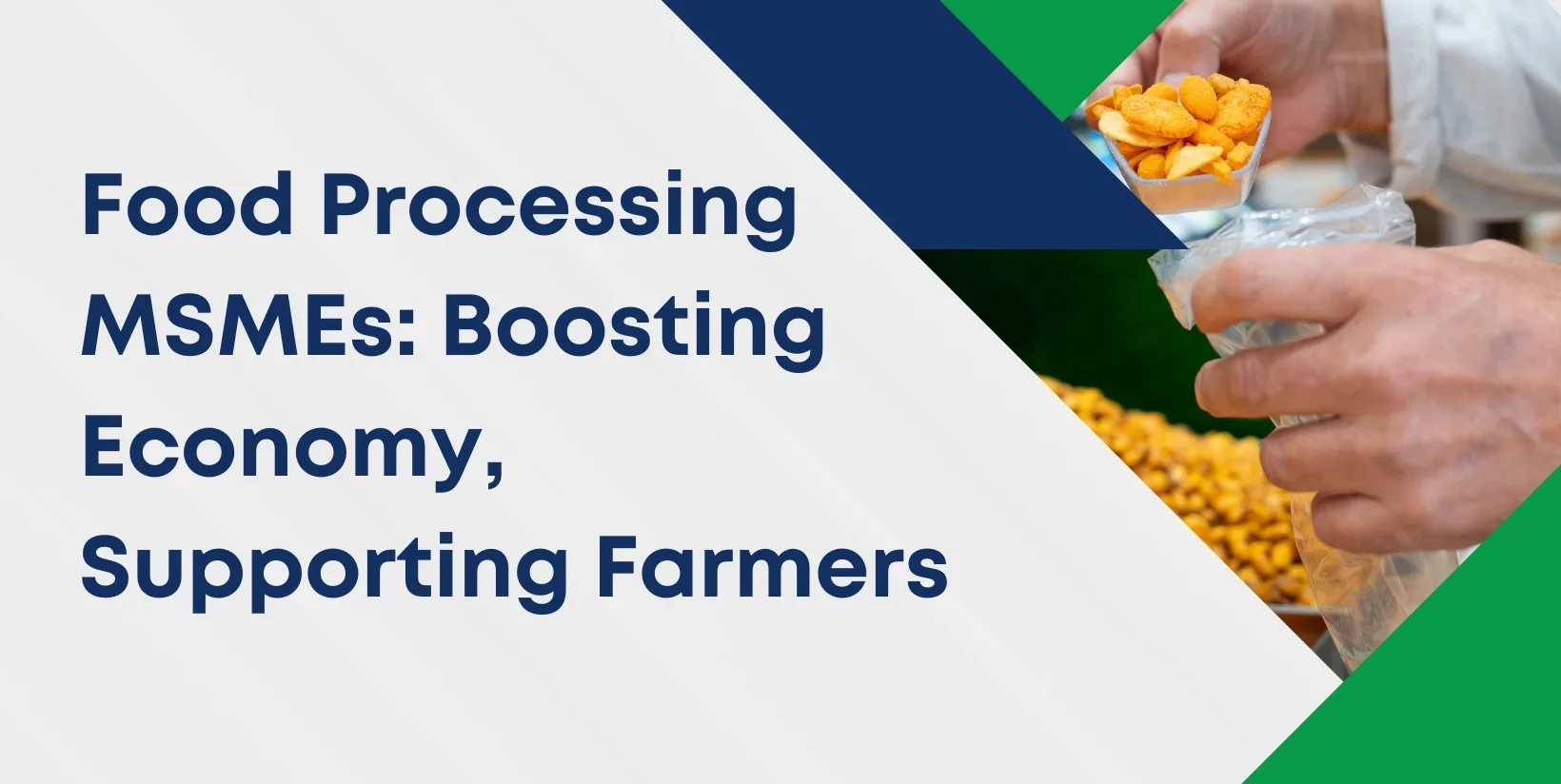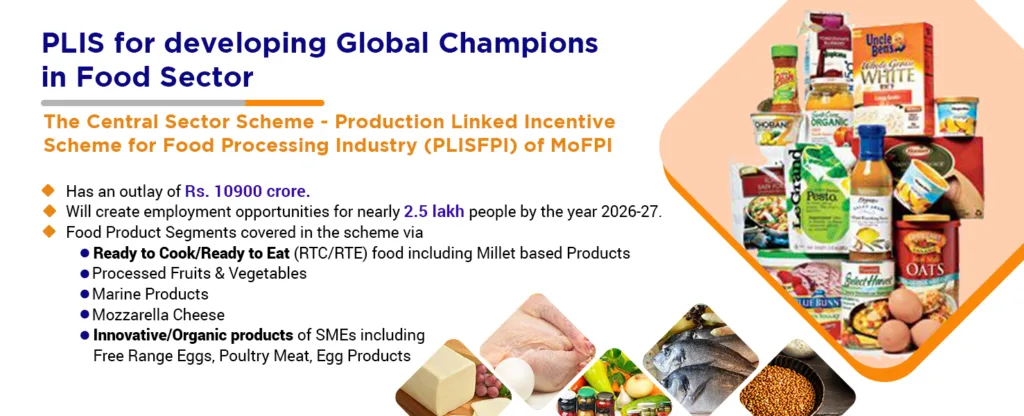
Micro, Small, and Medium Enterprises (MSMEs) are widely recognized as the backbone of the Indian economy. With over 63 million MSMEs contributing around 30% to India’s Gross Domestic Product (GDP) and employing millions of people, the sector is crucial to India’s growth story. A significant part of this sector that holds immense promise is food processing, which is not only key to reducing food wastage but also integral to enhancing farmer incomes and ensuring food security.
In recent years, the Indian government has launched several initiatives to strengthen the MSME sector, particularly in food processing. States like Bihar and Andhra Pradesh are taking the lead by providing incentives to foster growth in this domain. By tapping into these opportunities, MSMEs in food processing can help pave the way for significant economic progress.
MSMEs have long been recognized as drivers of employment, innovation, and inclusive development. In India, these enterprises represent a diverse range of industries, from manufacturing to services, and play a critical role in bridging the urban-rural divide. Particularly in food processing, MSMEs are essential for creating value-added products from agricultural produce, reducing post-harvest losses, and increasing the availability of processed foods in domestic and international markets.
The ability of MSMEs to operate at both grassroots and industrial levels makes them highly adaptable and capable of addressing local needs while contributing to broader economic objectives. However, for MSMEs to truly flourish, they need adequate infrastructure, financial backing, and supportive policies from the government.
India is one of the largest producers of agricultural products globally. Despite this, the country struggles with significant post-harvest losses due to inadequate storage, transportation, and processing infrastructure. It is here that food processing becomes critical. By increasing the shelf life of agricultural products and transforming raw materials into high-value goods, food processing can significantly reduce wastage and contribute to higher incomes for farmers.
Moreover, food processing is integral to ensuring food security. With a growing population and increasing demand for processed food, India’s food processing sector is poised to become a major contributor to the national economy. The sector’s expansion can also provide much-needed employment in both rural and urban areas, particularly for low-skilled workers.
Recognizing the potential of food processing, the Indian government has introduced several schemes to boost the sector. The Pradhan Mantri Kisan SAMPADA Yojana (PMKSY), for instance, aims to modernize the industry and increase the level of processing in the country. By providing funding for the establishment of food processing units and cold chains, the scheme seeks to enhance the supply chain and reduce wastage.
Another key initiative is the Production-Linked Incentive Scheme for Food Processing (PLISFPI). This program is designed to encourage MSMEs to scale up operations by providing financial incentives based on production output. Such measures are expected to stimulate investments in food processing and help MSMEs become more competitive in global markets.

In states like Bihar and Andhra Pradesh, the potential for food processing is particularly high due to the abundance of agricultural produce. The governments in these states have been proactive in encouraging investments in this sector by offering incentives and facilitating better market linkages between farmers and MSMEs.
Despite the promising outlook, there are several challenges that MSMEs in the food processing sector face. One of the most significant barriers is the delay in receiving incentives and financial assistance from the government. This has caused many small businesses to stagnate, particularly in states like Bihar, where government support has been slow to materialize.
In addition, the sector faces infrastructural limitations, such as inadequate storage facilities and lack of modern technology. These issues hamper the ability of MSMEs to scale up their operations and compete with larger enterprises. Furthermore, the recent dip in food exports has made it harder for small businesses to find markets for their products, exacerbating the financial strain on these enterprises.
Despite these challenges, the future of MSMEs in food processing is bright, particularly if efforts are made to address the existing barriers. By focusing on strengthening the supply chain, improving access to modern technology, and providing timely financial support, the government can enable MSMEs to unlock their full potential.
The economic benefits of expanding the sector are immense. Not only will it create new employment opportunities, but it will also ensure better price realization for farmers, reduce food wastage, and contribute to greater food security. Furthermore, as MSMEs adopt more sustainable practices, such as eco-friendly packaging and energy-efficient processes, they can also play a key role in reducing the environmental impact of food production.
In conclusion, MSMEs and food processing represent a powerful combination for driving India’s economic growth. With the right policies and support systems in place, these sectors can catalyze a transformation that benefits farmers, small businesses, and the wider economy. By tapping into this potential, India can create a more inclusive and sustainable economic future.
November 16, 2024 | Team Brydgework
India offers a variety of business structures, each with distinct characteristics, setup processes, and regulatory requirements. Choosing the right structure…
Read More
July 16, 2025 | Hemant Kumar
Over the decades, India-Russia relations have been characterized by defence cooperation, Cold War solidarity, and strategic coordination in international affairs.…
Read More
July 3, 2025 | Hemant Kumar
“GST is not just a tax reform; it is a path-breaking legislation for New India.” — Narendra Modi Introduction: A…
Read More